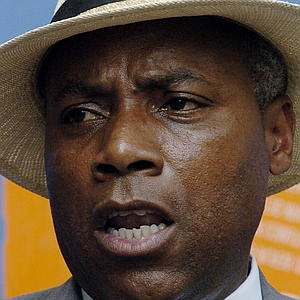The Madhesi political consciousness came to me much later. At the Kathmandu high school I attended, the m-word was in the air, people would tell racist jokes about your people like you were not even there, comedian Santosh Pant made a living out of it, and the guy was on national TV. But as a successful student who went on from leadership position to leadership position, I was to an extent shielded, but that was a false shield. It was weak. And one administrative blow crashed the glass around me towards the end of my Class 10 year. After that it took me years of emotional pain, and meandered career trajectories, and political action led more by a hunger for all things political than the Madhesi rights issue that I ultimately floundered upon the Sadbhavana types, and that gave me some of the vocabulary, which I quickly found highly inadequate.
Race matters powerfully, Barack Obama has said. I had a very happy freshman year at college in Kentucky. And then the blow of an administrative decision crashed my glass all over again. It was yet another experience in disenchantment with yet another highly reputed educational institution. And so I am a huge proponent of taking as much of education online as possible. Knowledge has to be freed up from the power structures of the day.
At college I was not thinking Madhesi rights. I was not thinking about it after. After the king pulled his coup in early 2005, I had no plans to get involved with the democracy movement, although I was much concerned, and when I moved to NYC a few months later, my full time involvement was gradual. I had no idea I cared so much about Nepal, the country I grew up in. I guess I did. It came from inside. But it was also the ideological purity of a democracy movement that brings a clarity that makes mobilization more black and white.
Late in 2006 the Nepalgunj riots happened, and that triggered the Madhesi Kranti, might as well, because it was that movement that mirrored the April Revolution of 2006 that gave Nepal the gift of federalism. I put full time work into the Madhesi Kranti. In many ways it was tougher than the democracy movement. Comrades in the democracy movement were now vocal, energized opponents.
When Upendra Yadav landed in Los Angeles a few months later, the first question he asked was, “Where is Paramendra Bhagat?” We had never met, we had never talked on the phone before. I used digital tools to do political work. It was no journalism.
Becoming NYC’s first full-time volunteer for Barack Obama brought it full circle. This was 500 years of world history come full circle. It was a once in a lifetime opportunity.
There is the macro politics. And there is the micro politics of emotionally damaged Madhesis and Janajatis you deal with at close range. NYC has allowed me interactions to see things up, close and personal.
But then the political compass is already pointing in the direction of economic growth. And if land-lockedness is Nepal’s biggest handicap, the solution lies in a South Asian economic union, and that basically asks for killing the false nationalism in Kathmandu that rests on all things anti-India. If Nepal’s political boundaries will have to weaken for Nepal to achieve prosperity, where will the identity come from? There are healthy sources of identity like culture, language, and religion. A South Asian economic union will not dilute those, quite the opposite. A more prosperous people will take better care of their cultural heritages. The resource crunch will wane.
Nepal’s future points in the direction of the land of my birth. My mother’s side of the family is Indian. If you have any idea about Mithila, you know how ridiculous the Nepal-India border is. My official birthday is not mine, but that of my favorite movie star, Amitabh Bachchan. I am Indian through and through.
I am 100% Indian. I am 100% Nepali. I am on the way to becoming 100% American. 300% is more than 100%. People with multi-cultural heritages are richer, and quite literally so. In today’s globalized world, being instinctive about cultural diversity gives you advantages. I deal with engineers in India. I happen to think Nitish through example has set an example to most of Nepal’s challenges. He is the ultimate Bihari Babu.
Eating MoMo was the best thing I learned in the decade plus I spent in Kathmandu. And I happen to think the dish is a billion dollar idea. I will forever remain fond of Narayan Gopal. I am a Buddhist. Buddha was a Teraiwasi like me. I earned the top marks in class in Nepali at high school. I got published a poem in Royal Nepal Academy’s Kavita, the most prestigious poetry magazine in the country at the time, when I was in Class 10. I have a love for the language.
I have been everywhere in America. The first question I was often got asked was, “Are you from India?” I never said no. I am Indian.



